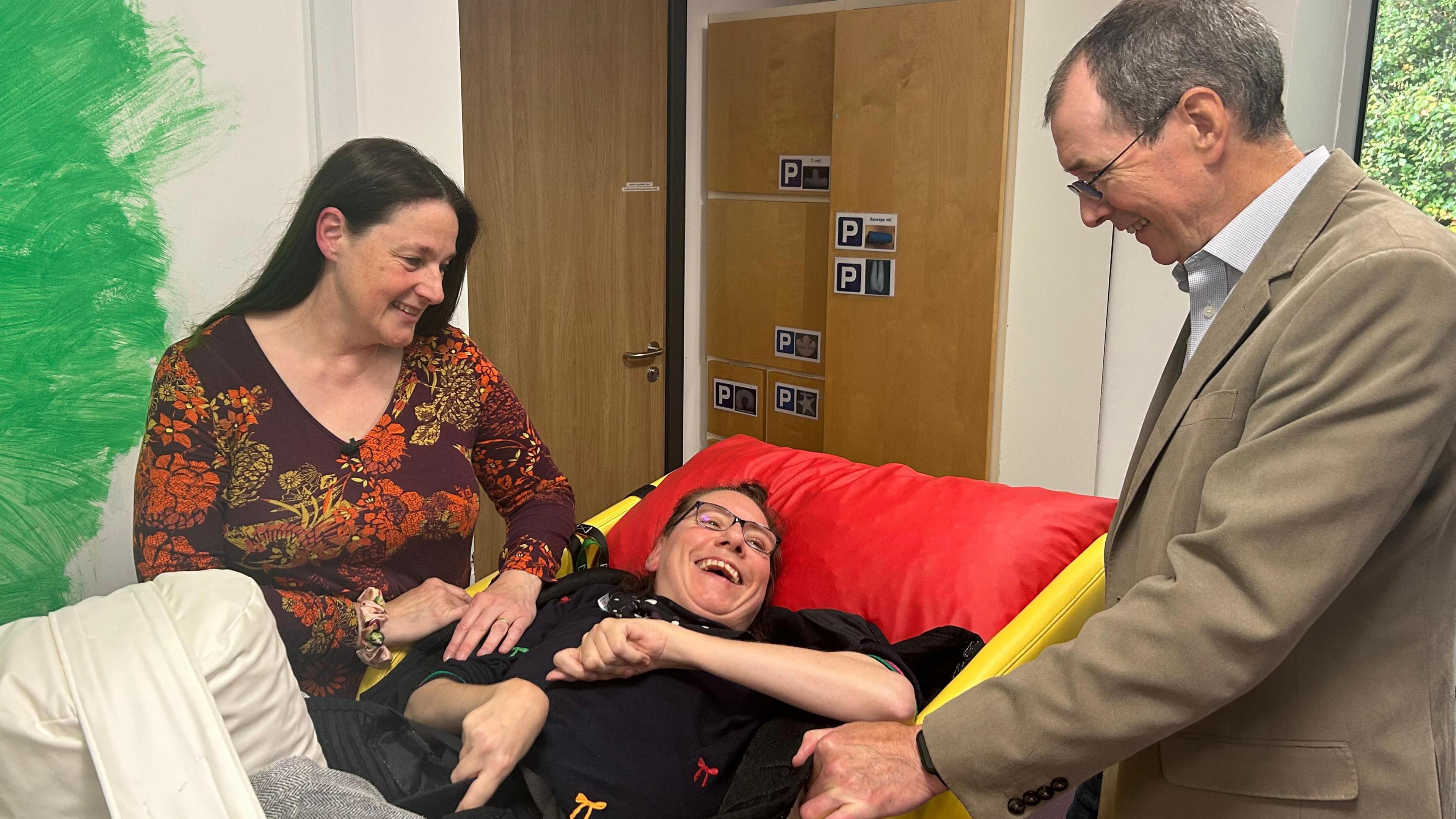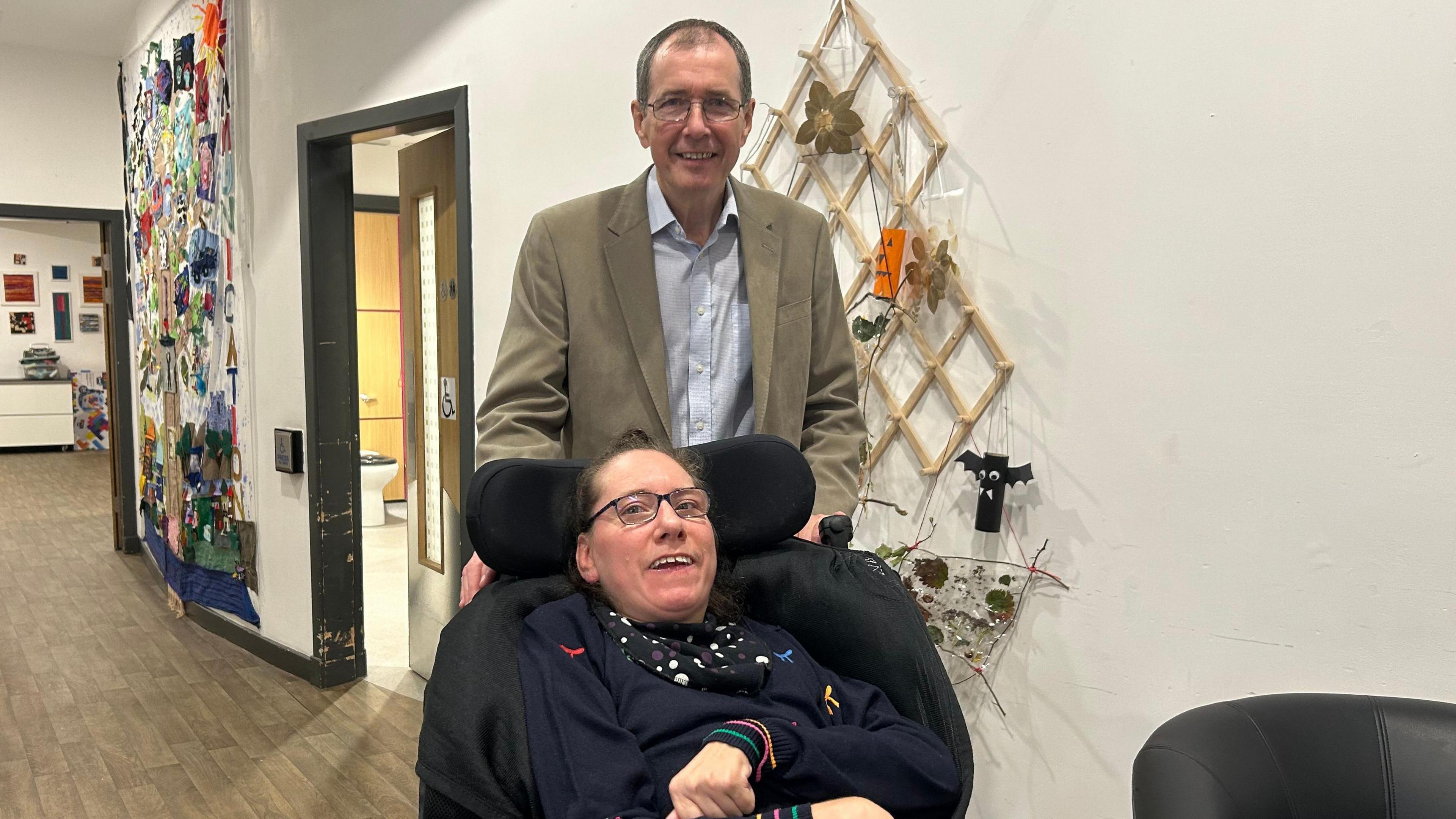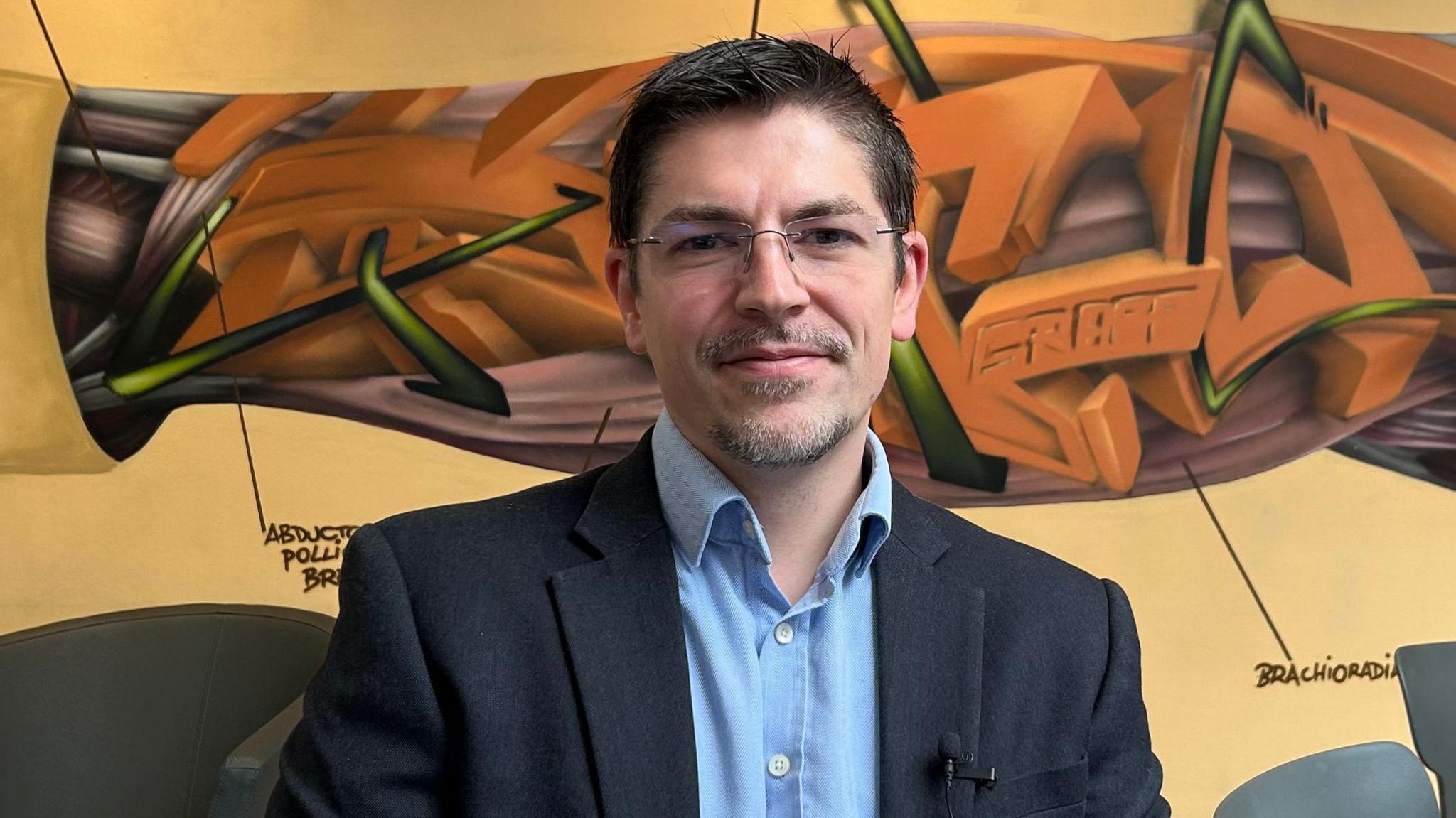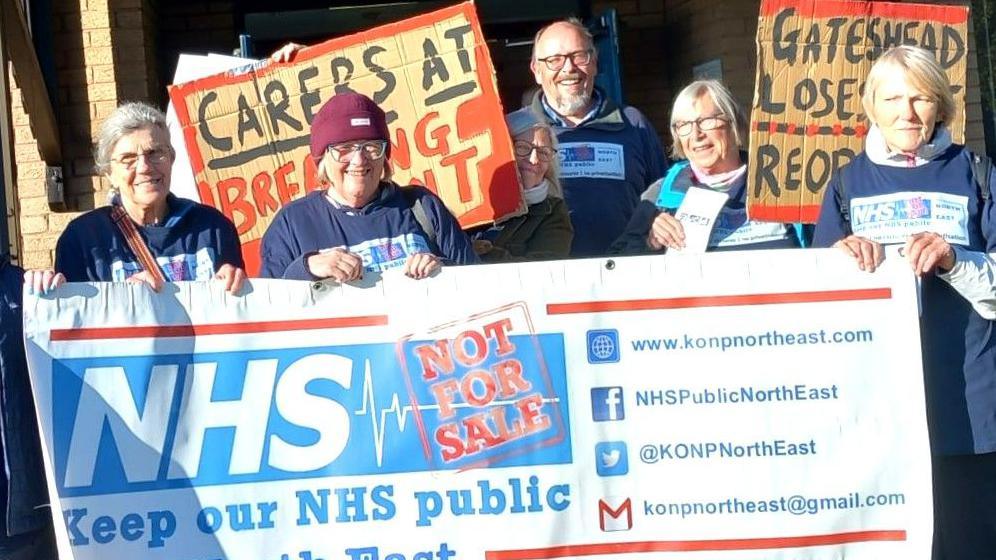Frailty index could improve life for younger patients

Claire Dempsey has cerebral palsy and her father Chris believes use of the frailty index might have helped her sooner
- Published
Researchers at a Scottish university have discovered a measure used to assess the health of older people can improve quality of life for younger patients.
Frailty is a condition usually recognised in the elderly.
It is defined as a state where someone is more vulnerable to illness, injury or other health changes.
Experts at Dundee University reviewed one million patient records and found that one in eight people under the age of 65 were suffering from frailty.
The researchers believe applying software known as the Electronic Frailty Index (EFI) to the younger cohort could lead to fewer hospital admissions and better health outcomes.
Claire Dempsey is 48 and was born with cerebral palsy.
She has physical and intellectual disabilities and is supported by a specialist team, as well as her family.
Her father Chris believes earlier intervention in Claire's health could have made a big difference.
"With a disabled child, you're having to learn as you go along. And you don't always know what you should expect. And it's difficult," he said.
"I think that unless you have people around you who really know what to expect then it's easy to miss things.
"And by the time you realise that, there is an issue, you've gone beyond it."

Claire Dempsey's father Chris believes the index should be used from birth
He added: "The frailty index should cover everyone, from birth. Because I think if you can identify these issues and these frailties earlier in life, then obviously you can start to deal with them."
That is where the experts at the University of Dundee are hoping their findings can be implemented.
The study, led by Dr Daniel Morales from the university's School of Medicine, explored whether the EFI - which is already used for older adults - could also identify vulnerable younger people who might benefit from early support.
While most people think of frailty as a weakness that comes with old age, its medical definition refers to a reduced ability of the body to cope with illness or stress.
Frailty makes people more vulnerable to sudden declines in health, hospitalisation and even early death.

The University of Dundee's Dr Daniel Morales thinks swifter intervention can deal with issues earlier in life
Dr Morales said: "Our findings suggest that frailty is not confined to older age and that younger adults with frailty may face especially-high risks of poor outcomes.
"In the long term, using the EFI to identify at-risk younger adults could help clinicians intervene earlier - by adjusting medications, offering rehabilitation or providing targeted support - to prevent avoidable hospital admissions and deaths.
"Patients could benefit from care that is more personalised to their health needs," he added.
For Claire, being assisted day-to-day is helping to manage her complex health needs.
Tina Poole, an occupational therapist with Capability Scotland, has developed a postural care policy.
She said: "Poor posture gives you a lot of frailty because you end up with all your body systems not working.
"You might end up with breathing problems, swallowing problems, digestive issues."
Ms Poole explained frailty was about the amount of things an individual needed help with and "and all the things that can go wrong when you don't get that help".
She added: "For people like Claire, the frailty index will only be as good as the diagnosing and investigating because, as we know, people with learning disabilities are still under-investigated and under-diagnosed."
Related topics
- Published31 March

- Published7 October
